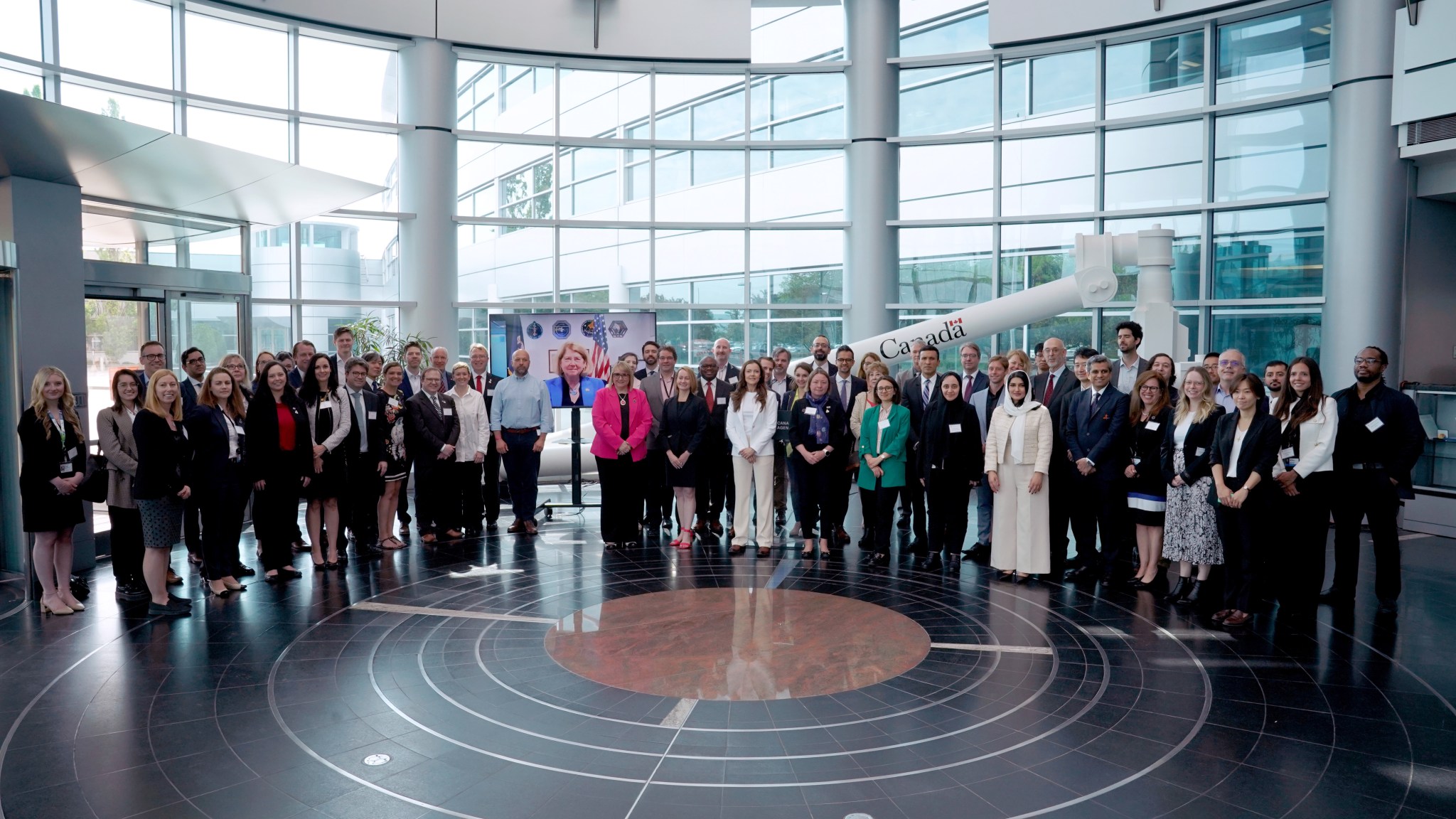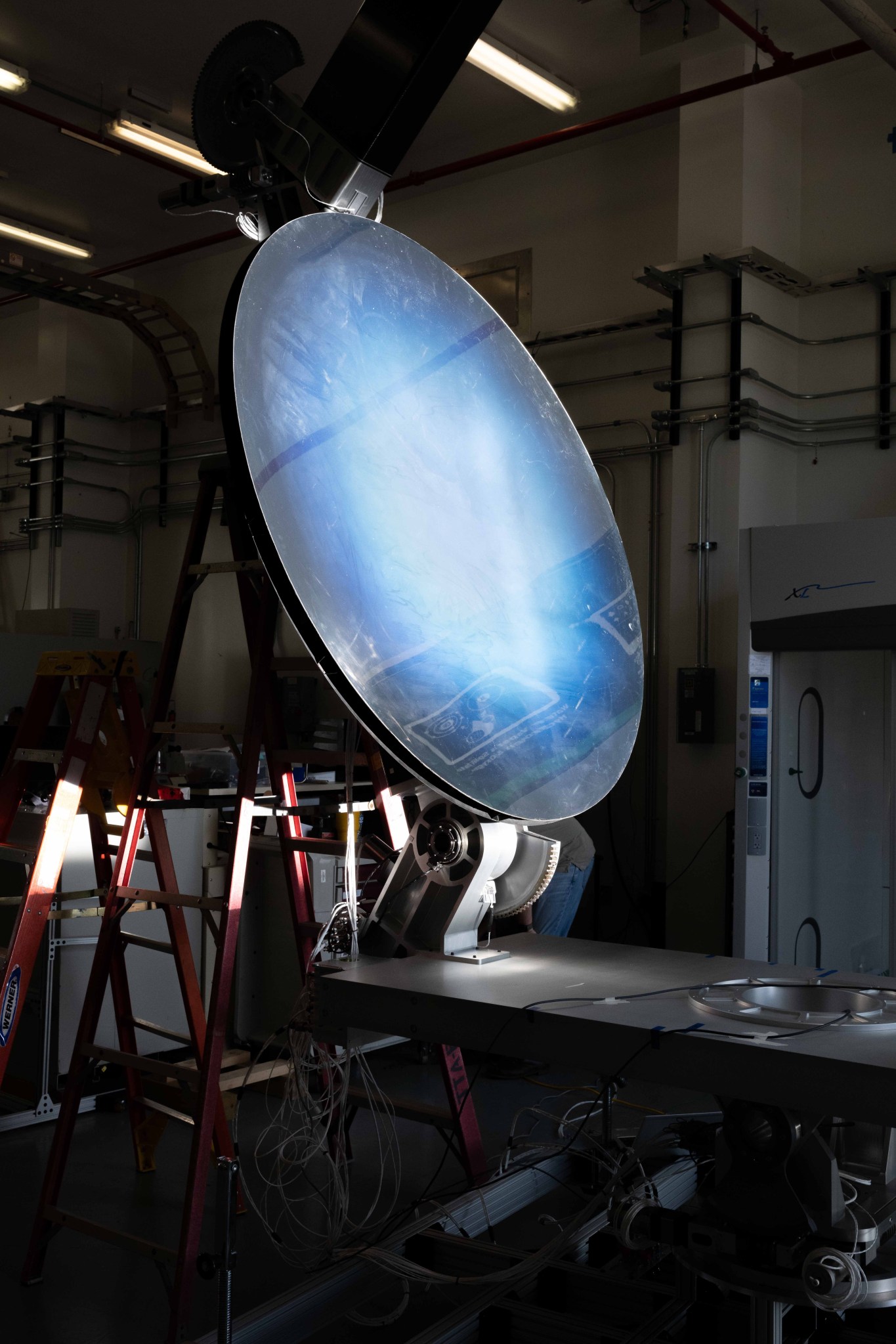NASA participated in the second international face-to-face workshop this week among Artemis Accords signatories, which featured space officials from two dozen nations focused on advancing the principles for the safe, peaceful, and responsible exploration of the Moon, Mars and beyond. This year’s workshop was hosted by CSA (Canadian Space Agency) at their headquarters in Montreal May 21-23.
Since the Artemis Accords were created nearly four years ago, 39 countries have joined the United States in a voluntary commitment to engage in transparent and responsible behavior in space. The accords are meant to push humanity’s reach farther safely and sustainably into space than ever before and build on more than 23 years of continuous human presence aboard the International Space Station.
“The Artemis Accords represent a shared vision for humanity’s exploration of space —one that transcends borders and fosters unity in our quest to expand our understanding of the cosmos,” said NASA Deputy Administrator Pam Melroy, who participated virtually to jointly kick-off the workshop with CSA President Lisa Campbell. “The days of going to space alone are long over. We are in a new age where nations globally go to space to both explore deeper and gain better understanding about our place in the universe.”
During workshop, participants from 24 countries engaged in robust discussions and conducted a tabletop exercise centered on further defining and implementing key tenets, including considering views on non-interference, interoperability, and scientific data sharing among nations.
“The Artemis Accords are an important part of humanity’s future in space and Canada is very much committed to these principles. As we explore beyond Earth, we must do so in ways that are safe and sustainable, for the benefit of humanity and future generations. It was an honour to welcome brilliant minds from around the world to discuss how to conduct present and future space exploration activities safely, sustainably, and transparently through the application of the Artemis Accords,” said Campbell.
For example, during the workshop participants delved more deeply into topics such as non-interference and interoperability. These discussions build upon prior work such as an initial set of mission data parameters agreed to by the signatories last October. The data parameters identify necessary information about planned lunar surface missions including expected launch dates, the general nature of activities, and the landing location.
Sharing such information will support safer lunar operations by ensuring signatories respective missions do not inadvertently interfere with each other. Transparency and communication are keys to peaceful exploration, and the Artemis Accords signatories are committed to sharing information about their activities and outcomes through the United Nations of Committee on the Peaceful Uses of Outer Space (UNCOPUOS) and other appropriate channels.
The commitments undertaken under the Artemis Accords, and the significant efforts by the signatories to advance implementation of these principles, are essential to the success of the Artemis campaign for NASA and its partners, as well as for the success of the safe and sustainable exploration activities of the other Accords signatories.
As the Artemis Accords workshop concluded May 23, participants reaffirmed their commitment to upholding the principles outlined in the Artemis Accords and to continue working collaboratively. The first workshop was hosted by Poland in 2023. Additional countries are expected to sign the Artemis Accords in the weeks and months ahead. Signatory principals will gather again for face-to-face discussions on the margins of the International Astronautical Congress in October.
The United States and seven other nations were the first to sign the Artemis Accords in 2020, which identified an early set of principles that promote the beneficial use of space for all humanity, grounded in the Outer Space Treaty and other agreements including the Registration Convention, the Rescue and Return Agreement, as well as best practices and norms of responsible behavior that NASA and its partners have supported, including the public release of scientific data.
For more information about the Artemis Accords, visit:
https://www.nasa.gov/artemis-accords/
-end-
Amber Jacobson / Jennifer Dooren
Headquarters, Washington
202-358-1600
amber.c.jacobson@nasa.gov / jennifer.m.dooren@nasa.gov
Related Terms
from NASA https://ift.tt/vK1L9fh



No comments:
Post a Comment